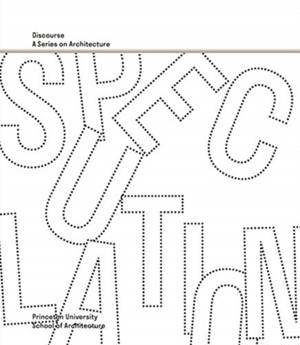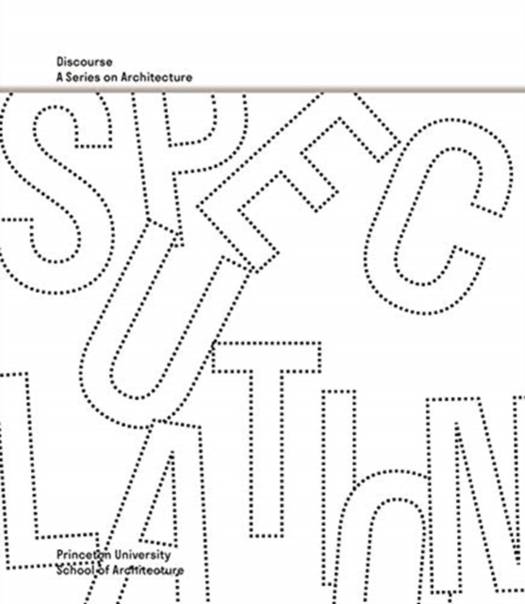
- Retrait gratuit dans votre magasin Club
- 7.000.000 titres dans notre catalogue
- Payer en toute sécurité
- Toujours un magasin près de chez vous
- Retrait gratuit dans votre magasin Club
- 7.000.0000 titres dans notre catalogue
- Payer en toute sécurité
- Toujours un magasin près de chez vous
Speculation
Discourse, a Series on Architecture
Monica Ponce De Leon, Kunle Adeyemi, Kelly Bair, Kristy Balliet, Beatriz ColominaDescription
Architecture's relationship with cultural production is complex. As a creative discipline, architecture has historically been free to speculate; as a material practice, however, it must contend with everyday realities. Buildings are produced in tension with tangible happenstances that have little to do with the discipline of architecture, yet everything to do with building, such as ever-changing zoning ordinances, inconsistent budgets, uneven access to materials, the peculiarities of a client, or economic interests, among others. This myriad of contingencies has a significant impact on the architectural object, obfuscating the status of the discipline as a creative practice. Speculation explores architecture as a form of cultural production that has traditionally been underestimated or undervalued and that has a unique ability to envision and materialize alternatives to the world around us.
Discourse is a biannual publication series that presents timely themes on and around architecture. A selective compilation of essays, interviews, roundtable discussions, featured exhibitions, photo-essays and collateral materials--such as architectural models, sketches, and built works--highlight architectural culture, practice, and theory.
Spécifications
Parties prenantes
- Auteur(s) :
- Editeur:
Contenu
- Nombre de pages :
- 208
- Langue:
- Anglais
- Collection :
Caractéristiques
- EAN:
- 9780964264120
- Date de parution :
- 16-04-24
- Format:
- Livre broché
- Format numérique:
- Trade paperback (VS)
- Dimensions :
- 216 mm x 248 mm
- Poids :
- 666 g

Les avis
Nous publions uniquement les avis qui respectent les conditions requises. Consultez nos conditions pour les avis.






